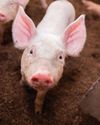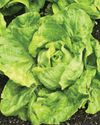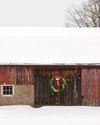
This fact has been well established both by scientific research and by centuries of practical experience.
What happens, though, when anyone proposes that we convert large areas of degraded cropland to pastures, in order to sequester enormous amounts of soil carbon? Detractors say that to do so would cause worldwide starvation, since statistics based on current levels of pasture production indicate that a pasture typically produces much smaller caloric output than a typical crop field.
That isn't the entire story, however. Here are some points to keep in mind.
FIRST OF ALL, throughout history the best soils were converted to cropland, while the worst soils were spared the plow and left in pasture. Most pasture acres simply cannot grow crops, because they are too rocky, too shallow, too droughty, too flood-prone, too something to grow crops. Pastures placed on productive ground are often several times more productive than the average pasture.
SECOND, the average cropland is relatively well managed, while the average pasture receives virtually no management: The animals are simply turned out and left to fend for themselves. When a controlled system of grazing management gets underway, even these current pastures on poor soil unfit for cropland can have their meat output doubled or more.
Esta historia es de la edición Best of Hobby Farms 2023 de Hobby Farms.
Comience su prueba gratuita de Magzter GOLD de 7 días para acceder a miles de historias premium seleccionadas y a más de 9,000 revistas y periódicos.
Ya eres suscriptor ? Conectar
Esta historia es de la edición Best of Hobby Farms 2023 de Hobby Farms.
Comience su prueba gratuita de Magzter GOLD de 7 días para acceder a miles de historias premium seleccionadas y a más de 9,000 revistas y periódicos.
Ya eres suscriptor? Conectar

The RISE of Opportunist WEEDS
Be prepared to see increasing changes in weeds we fight, such as poison hemlock and poison ivy, and in the crops we grow.

LIVESTOCK Health
Prepare yourself for how to spot symptoms of illness in your farm animals so that you can get them help before it's too late.

CUT FLOWER Farming
If you're considering growing flowers for sale, brush up on these five key things to know before diving in.

WINTER Survival
Keep your land, animals and yourself in good shape this winter with this helpful advice.

COVERAGE CONCERNS
Avoid common insurance mistakes for rural and hobby farm businesses.

FARMER'S GUIDE Berries
Set the stage for tasty strawberries, blueberries and brambles with these soil-boosting garden tips.

Preconditioning CALVES
Follow our step-by-step guide to get more money for your calves.

Soil Conservation
Often, outside of having a specific problem that needs to be addressed, soil conservation isn't something every farmer readily thinks about. Yet conserving the soil should be at or near the top of every farmer owner or manager's list of concerns because absent the prevention of soil erosion, we have the opportunity for another dust bowl.

Year-Round Lettuce & Salad Mixes
It's easy to think of salad greens as just a spring- or fall-garden crop, but it's possible to enjoy freshly harvested lettuces, mustards and more from your own garden year-round.

Barn Improvements
Days are never long enough for a farmer. From dawn to well into the night, tasks arise that often require immediate action. Having to search for tools or equipment is an enormous time waster and incredibly frustrating when you can't find what you need, especially when you know you have it.